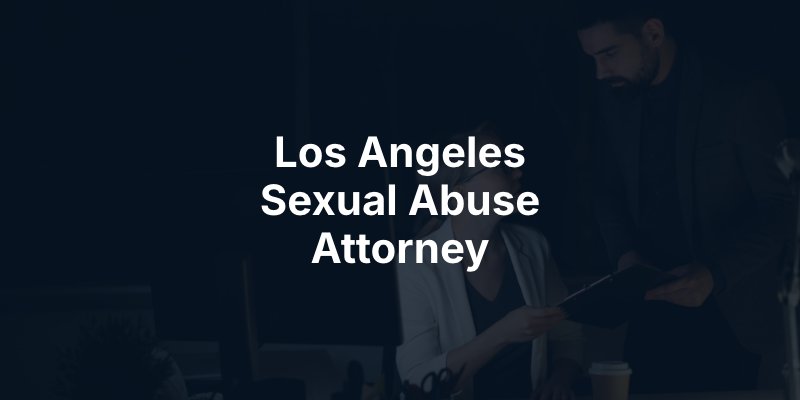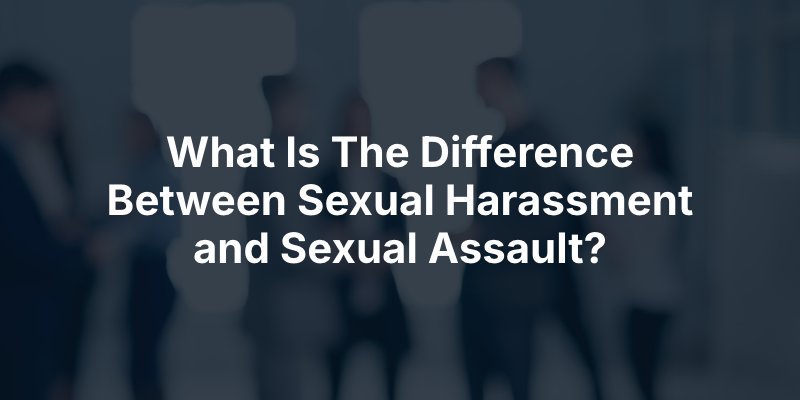If you are a victim of sexual abuse you may be dealing with physical or mental disabilities that require some personal time to deal with the situation. You may also be entitled to reasonable accommodations from your employer to help you deal with your situation.
 If your employer is denying you the right to reasonable accommodations and taking adverse actions against you because of your experience with sexual abuse, you should speak with a Los Angeles sexual harassment lawyer to discuss your legal options. Aegis Law Firm can assist you in pursuing your rights and holding your employer responsible for any harm you suffer.
If your employer is denying you the right to reasonable accommodations and taking adverse actions against you because of your experience with sexual abuse, you should speak with a Los Angeles sexual harassment lawyer to discuss your legal options. Aegis Law Firm can assist you in pursuing your rights and holding your employer responsible for any harm you suffer.
Do you feel neglected? Do you feel overwhelmed by your situation at work? Our Los Angeles employment lawyers can help you. We will fight for your case even when others won’t. Best of all, you don’t have to pay anything upfront to get justice. Your initial consultation is free, and you pay no fees unless our Los Angeles sexual abuse attorneys win. For unmatched professionalism and diligent representation, call us today at (949) 379-6250 to schedule your free consultation.
Sexual abuse in the workplace involves any unwelcome sexual behavior that violates a worker’s sense of safety, dignity, or bodily autonomy. While some acts overlap with sexual harassment, sexual abuse typically refers to more severe or physically invasive behavior. At work, sexual abuse may include:
Employers have a duty to provide a safe work environment. When they fail to prevent or respond appropriately to abuse, they can be held liable under California law. Additionally, survivors may bring civil claims to recover damages from both the individual abuser and the employer if negligence, cover-up, or lack of protective measures contributed to the abuse. These claims are brought separate from criminal charges.
Although sexual harassment and sexual assault are often mentioned together, they are legally distinct concepts in California.

Sexual harassment involves unwelcome sexual advances, comments, or conduct that create a hostile or abusive work environment. Examples include:
Harassment can occur without physical contact.
Sexual assault involves physical contact or attempted contact of a sexual nature without consent. It includes groping, forced kissing, coerced sexual acts, or rape. Assault is not only a civil wrong but also a crime.
If you are suffering from sexual abuse, state and federal laws offer you some protection against unfair treatment at work. Specifically, California Labor Code section 230 details workplace protections for victims of sexual abuse.
Under the Code, an employer of any size cannot discharge or take any discriminatory or retaliatory action against an employee who is a victim of sexual abuse for any of the following reasons:
In addition to Labor Code protections, California’s Fair Employment and Housing Act (FEHA) prohibits sexual harassment, discrimination, and retaliation in the workplace. Employers must take all reasonable steps to prevent and correct harassment and abuse. FEHA applies to any employer with five or more employees and allows survivors to file claims for damages if an employer fails to act.
Furthermore, employees who report sexual abuse or harassment are protected by California’s whistleblower laws (California Labor Code Section 1102.5), which prohibit retaliation for reporting unlawful activity. Employers who punish, demote, or terminate employees for coming forward with complaints may face additional liability.
California law also recognizes the seriousness of sexual abuse and provides remedies under California Civil Procedure Code § 340.16. This law allows survivors of adult sexual assault to pursue civil claims for damages within 10 years of the assault or three years of discovering a resulting injury, whichever is later. This statute provides extended timeframes for survivors of childhood sexual abuse.
Together, these laws ensure that survivors of sexual abuse in the workplace not only have the right to pursue safety and legal remedies but also remain protected from retaliation or discrimination as they seek justice.
Experiencing sexual abuse at work is traumatic. Survivors may feel fear, shame, or concern about retaliation. Taking immediate, thoughtful action helps protect both legal rights and personal safety.
Taking action is difficult, but it can stop ongoing abuse, protect future employees, and allow you to pursue justice for all you have endured.
California provides generous but strict timelines for filing sexual abuse claims. Missing a deadline can prevent survivors from seeking damages, so understanding the statute of limitations is critical.

Employees must first file a complaint with the CRD within three years of the last incident. After the agency issues a right-to-sue notice, the survivor may pursue a civil lawsuit.
Survivors who experience sexual abuse as adults generally have 10 years from the date of the assault to file a civil lawsuit. Alternatively, they may have three years from the date they discover psychological injury caused by the abuse.
Employers and institutions often use the statute of limitations as a defense to dismiss claims. Filing early gives survivors a stronger chance to preserve evidence, secure witnesses, and obtain compensation.
Employers with 25 or more employees have additional requirements to allow a victim of sexual abuse seek medical or legal assistance.
All employees who require time off for these allowed purposes must give their employer reasonable advance notice of their intention to take time off, unless the circumstances prevent the employee from giving advance notice. If reasonable notice is not feasible, employees must be given a chance to provide documentation to justify their absence before any adverse action is taken against an employee. Documentation can be in the form of a court order, a medical report, a police report, or any other form of documentation that verifies that the employee or their immediate family member was a victim of sexual abuse.
If your employment has been terminated or you have suffered disciplinary action, retaliatory action, or other adverse action because of your absence from work due to sexual abuse, you may be protected by the law. To determine whether you have a valid claim against your employer, call Aegis Law Firm today at (949) 379-6250 to schedule a free consultation and assessment of your case.